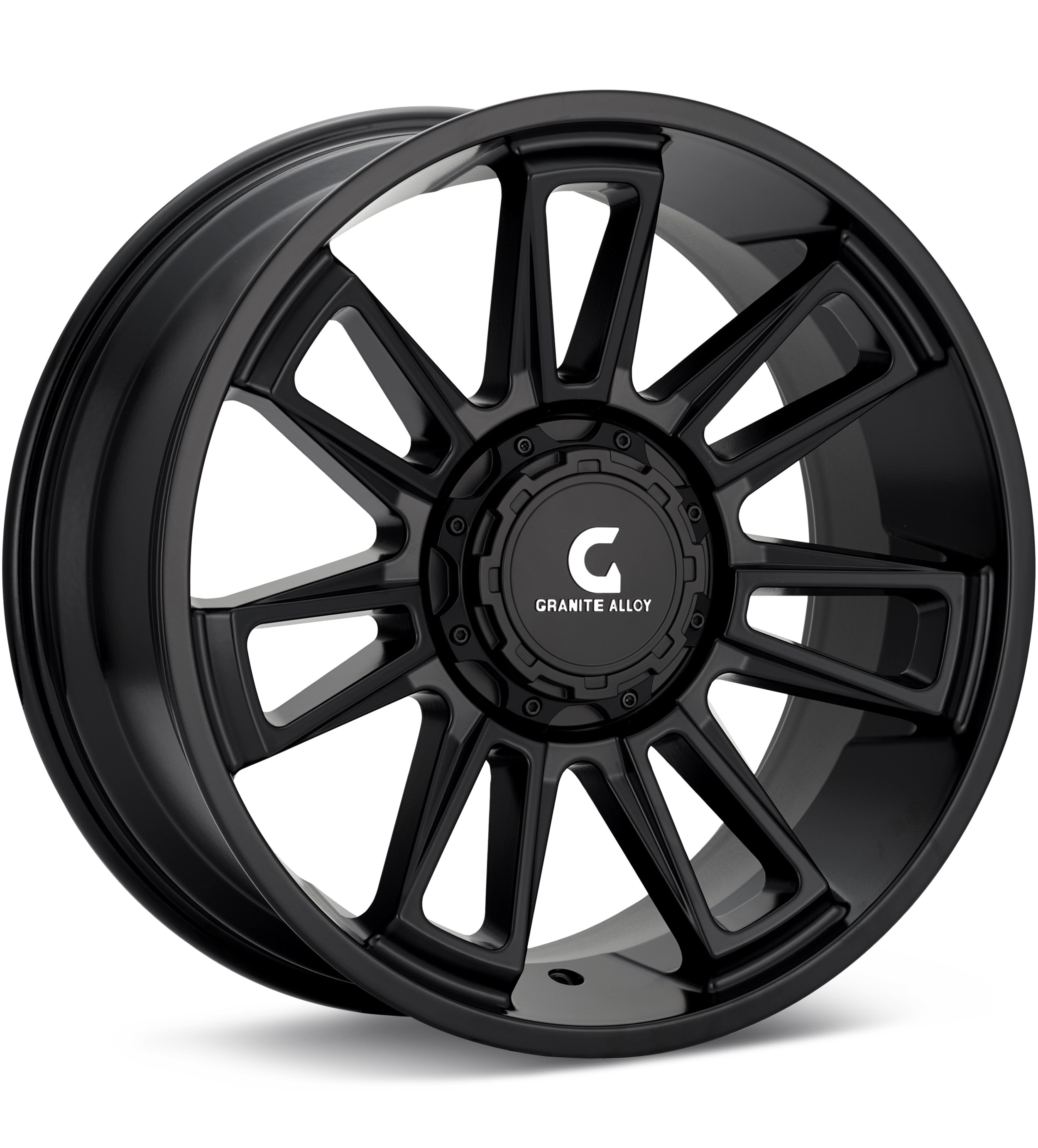Granite Alloy Wheels: A Blend of Strength, Sturdiness, and Looks
Granite Alloy Wheels: A Blend of Strength, Sturdiness, and Looks
Blog Article
Introduction: The Significance of Picking the Right Granite Alloy Rims for Your Vehicle
When it comes to enhancing the look and performance of your vehicle, selecting the best collection of Granite Alloy rims is crucial. Not only do these rims add a touch of design and class to your car, but they also improve handling and general driving experience. Nevertheless, with numerous alternatives readily available in the market, finding the right rims can be overwhelming. That's why we have created this ultimate guide to help you make an informed choice and pick the excellent Granite Alloy rims for your vehicle.

What are Granite Alloy Wheels?
Before diving right into the details of selecting the perfect Granite Alloy rims, allow's first comprehend what exactly these wheels are. Granite Alloy wheels are made from a mix of high-grade aluminum alloy and various other metals, making them lightweight yet sturdy. These rims are known for their exceptional strength-to-weight ratio, which enables far better acceleration, stopping, and handling. Additionally, Granite Alloy wheels are extremely resistant to rust and deal superior warm dissipation residential or commercial properties.
Aspects to Consider When Deciding On Granite Alloy Rims
1. Dimension Issues: Locating the Right Diameter and Width
The dimension of your Granite Alloy rims plays a critical role in both looks and performance. It is important to choose rims that are compatible with your vehicle's requirements. The size of the rim should match the tire size advised by the manufacturer. Furthermore, take into consideration the width of the rim as it affects tire fitment and overall performance.
2. Bolt Pattern: Making Sure Correct Fitment
The screw pattern describes the variety of screws on the rim and their spacing. It is essential to choose Granite Alloy rims with a bolt pattern that matches your vehicle's hub pattern. Setting up rims with an inaccurate screw pattern can bring about inappropriate fitment, creating safety and security hazards and affecting handling.
3. Offset and Backspacing: Achieving the Right Stance
The offset determines how far the rim sits from the vehicle's hub. It is essential to choose a Granite Alloy rim with the correct countered to attain the wanted position. A favorable balanced out indicates the placing surface area is better to the outside, while a unfavorable offset means it is closer to the within. Recognizing your vehicle's details demands will help you pick rims that supply optimum clearance and prevent rubbing concerns.
4. Lots Score: Ensuring Security and Resilience
Each vehicle has a advised lots score, which suggests the maximum weight ability that the rims can sustain. It is important to choose Granite Alloy rims with a load ranking that matches or exceeds your vehicle's demands. Opting for rims with a reduced tons rating can endanger security and sturdiness.
5. Style and End Up: Enhancing Your Vehicle's Appearance
Granite Alloy rims come in various designs and surfaces, permitting you to customize your vehicle's appearance. Consider your vehicle's total aesthetic and pick a rim design that complements it. Whether you favor a smooth and modern appearance or a more rugged and aggressive layout, there are choices available to match every preference.
Frequently Asked Questions (FAQs)
Q1: Are Granite Alloy rims ideal for all kinds of vehicles?
A1: Yes, Granite Alloy rims are available in different sizes and setups suitable for various types of vehicles, consisting of cars, trucks, SUVs, and crossovers.
Q2: Can I install Granite Alloy rims on my very own?
A2: While it is possible to set up Granite Alloy rims on your own, it is suggested to look for expert aid to guarantee correct fitment and prevent any kind of potential problems.
Q3: Exactly How do Granite Alloy rims improve performance?
A3: Granite Alloy rims are lighter than conventional steel wheels, lowering unsprung weight. This improvement in Granite Alloy rims models weight circulation brings about better acceleration, stopping, and handling, ultimately improving total performance.
Q4: Can I utilize my existing tires with Granite Alloy rims?
A4: For the most part, you can use your existing tires with Granite Alloy rims as long as they work in regards to size and fitment. It is suggested to speak with a specialist to guarantee a correct match.
Q5: Are Granite Alloy rims a lot more expensive than various other types of wheels?
A5: While Granite Alloy rims may be a little more costly than steel wheels, they supply superior sturdiness, performance, and visual allure, making them a worthwhile investment.
Q6: Exactly how do I keep Granite Alloy rims?
A6: To keep your Granite Alloy rims in top condition, consistently clean them using a moderate soap and water option. Stay clear of utilizing extreme chemicals or unpleasant cleansers that may damage the surface. In addition, use a protective covering or wax to avoid rust.
Final thought
Selecting the best Granite Alloy rims for your vehicle is a choice that must not be ignored. By taking into consideration aspects such as dimension, bolt pattern, offset, load score, and design, you can make certain optimum fitment and performance. Whether you intend to improve the look of your car or improve its dealing with abilities, Granite Alloy rims are an exceptional option. Keep in mind to seek advice from experts and comply with producer recommendations throughout the option and setup process to achieve the most effective outcomes. Purchase high quality rims today and delight in the advantages for several years ahead! Report this page